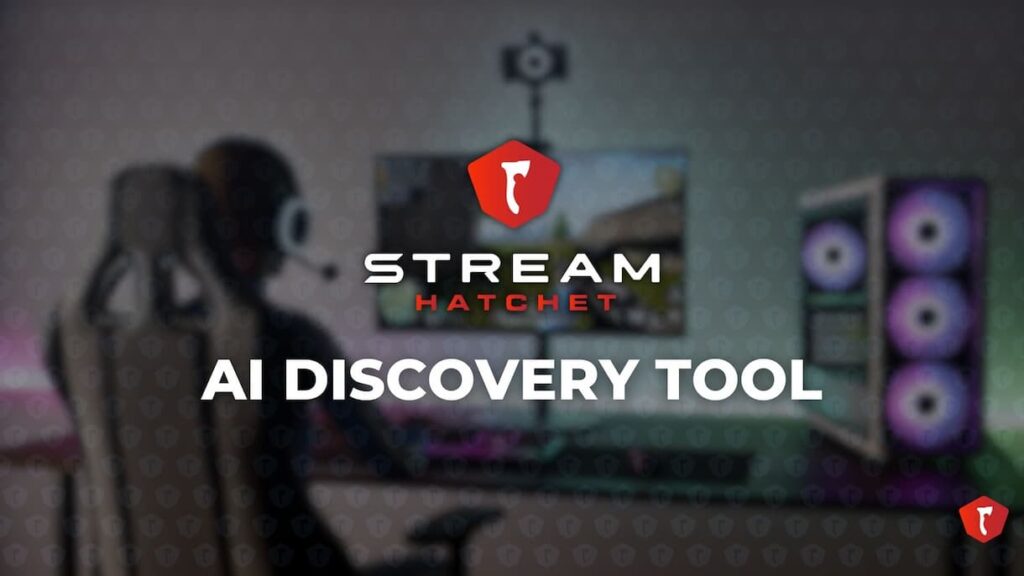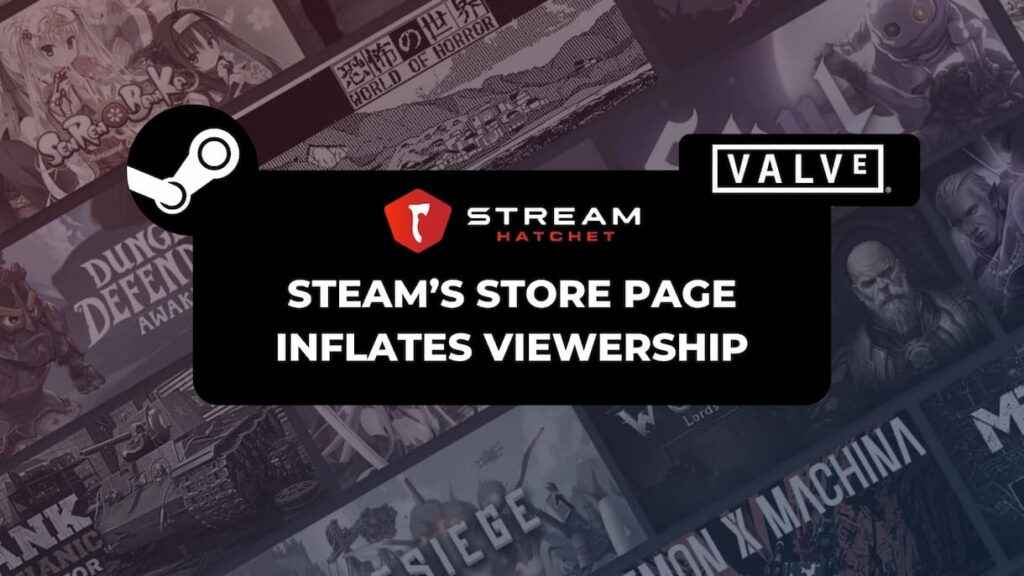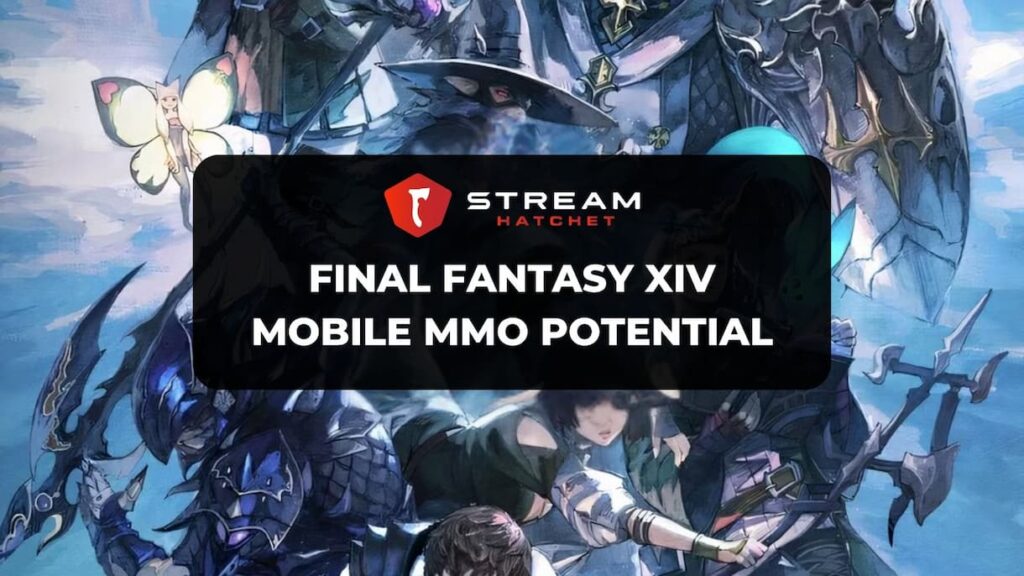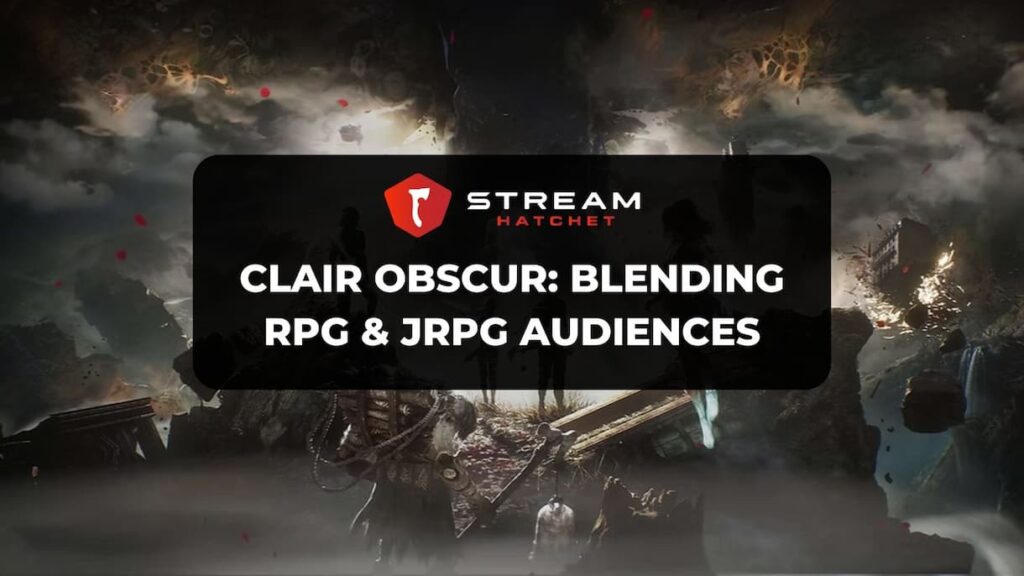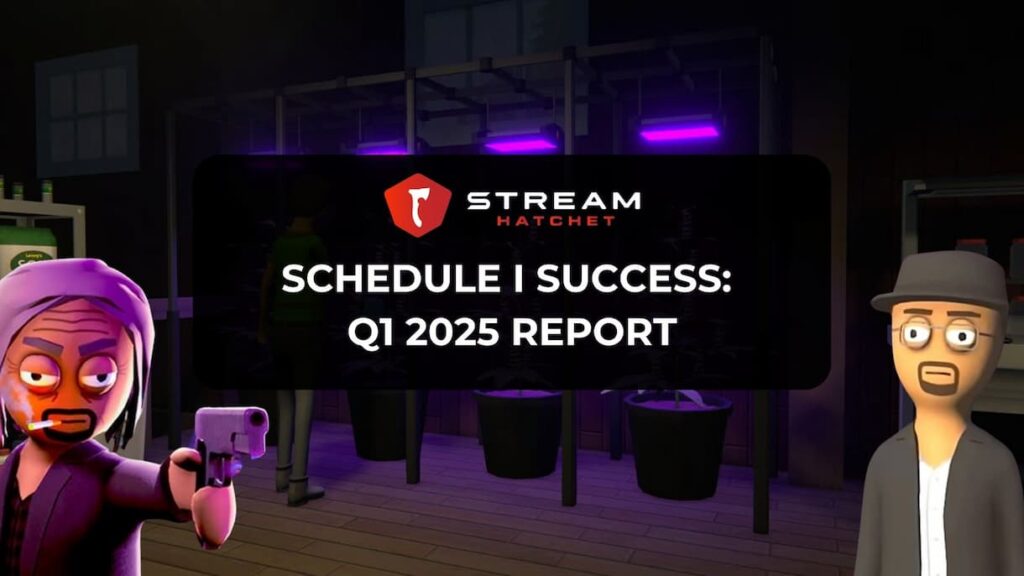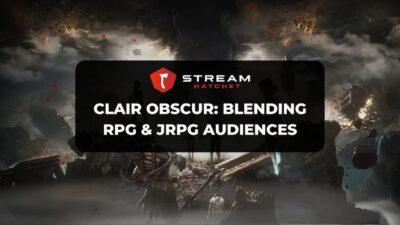Discovering new talent in the crowded live-streaming arena is incredibly difficult and time-consuming. Although mega-popular streamers stand out with record subathon events and astoundingly high viewerships, these streamers are often tied up in pre-existing brand deals or command prices exceeding most marketing budgets. Middleweight streamers make better partners for emerging brands, but the range of their content and tone can vary wildly. Understanding which creators are the best fit for specific brands becomes an exercise beyond the purview of any single industry expert.
To remedy this issue, Stream Hatchet has designed a new methodology for finding and evaluating streamers for partnerships: The Influencer Discovery Program. Through a three-step process powered by cutting-edge AI technology, we have devised a way to sift out the noise of millions of unrelated channels and find just the few dozen streamers that are best suited to a brand’s needs.
Put simply, the new Influencer Discovery Program achieves three key objectives:
- Uses an AI-assisted system that scans through real-stream speech from the streamer under consideration to determine qualitative data
- Takes classic metrics from Stream Hatchet’s extensive database and combines them with non-numerical data to create a fuller picture of streamers’ content
- Produces a tailored list of prospective influencers to partner with based on specific briefs from clients
In this introduction to the Influencer Discovery Program, we walk you through the entire process from start to finish with real results from our work with Scopely, the developer behind massive mobile titles like Monopoly Go! and Stumble Guys.
The Three Steps to Finding New Creators for Influencer Marketing
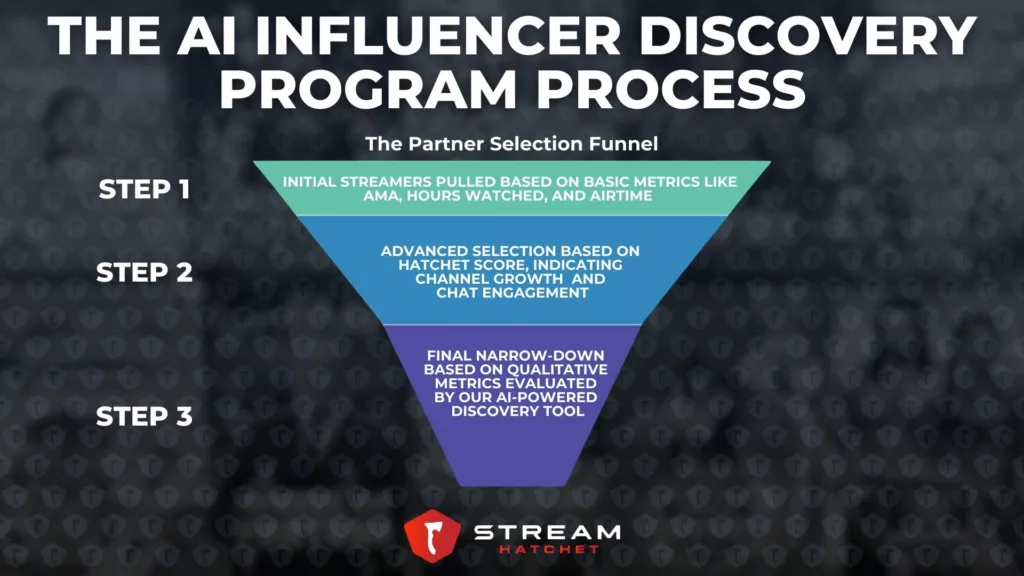
Narrowing down millions of creators to just the right ones for a client’s campaign requires a three-step process:
- Initial Metrics: Evaluating which streamers are dedicated to the right types of content and have high enough viewership using classic metrics like Hours Watched, Average Minute Audience (AMA), and so on
- HATCHET Score: Refining the potential pool of creators using our specialized HATCHET score to evaluate their growth, level of chat interaction, and how many unique viewers they attract
- AI-assisted Discovery: Defining these streamers’ content creation style and tone using the aforementioned AI-assisted Discovery technology to ensure they meet client’s needs
From here, an expert can sit down with the client and go through the final list to consider each streamer on a case-by-case basis. However, this three-step Influencer Discovery Program massively reduces manual workload and highlights streamers that might not have otherwise been discovered with traditional metrics.
For the purposes of this article, we’ll skip over Step 1) as these metrics are part of the basics of live streaming. But Steps 2) and 3) deserve further exploration…
Proving a Streamer’s Growth and Engagement with the HATCHET Score
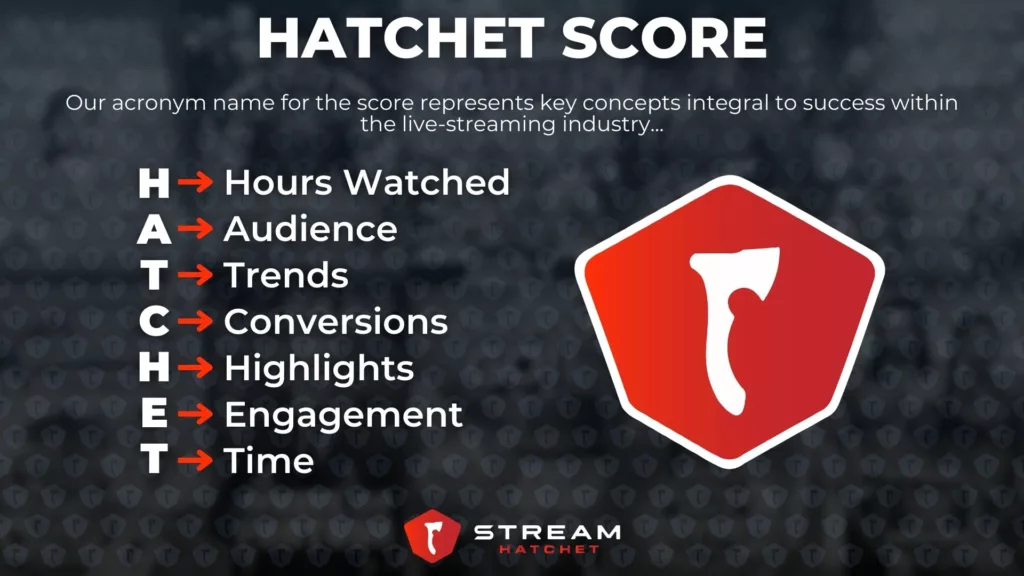
Simple streaming stats alone aren’t enough to tell the whole story when it comes to a creator’s place on live-streaming platforms. Some streamers have massive fanbases, but low chat engagement as their fans are casual viewers. Alternatively, some streamers with small fanbases are growing rapidly and are worth reaching out to!
To solve this problem, we’ve devised the “HATCHET Score”: A Stream Hatchet scoring system based on a Z-Scoring methodology to discover the best-performing channels in multiple aspects. HATCHET encapsulates the seven broad ideas that best define a streamer’s popularity: Hours Watched, Audience, Trends, Conversions, Highlights, Engagement, and Time.
Put simply, the HATCHET Score tells you not just the size of a channel’s audience, but how engaged their audience is. And for a brand, engagement is crucial for converting viewers into customers.
Defining Streamer Content Using a Revolutionary AI-Powered System
Once we have cut down the list of prospective streamers using traditional metrics and the HATCHET score, we can use AI-assisted Discovery technology to further define the content style and tone of each remaining streamer.
Determining a streamer’s content style is done by feeding many scripts of concluded streams into an AI engine (Large Language Model or LLM) which analyzes the language used by the streamer. Certain words are used in certain circumstances, such as expressing political opinions, engaging with the stream’s chat, or swear words. The AI then concludes based on a high volume of scripted input how this streamer generally talks, and therefore what their content feels like.
Five qualitative criteria are used to summarize the AI’s findings, outlined below:
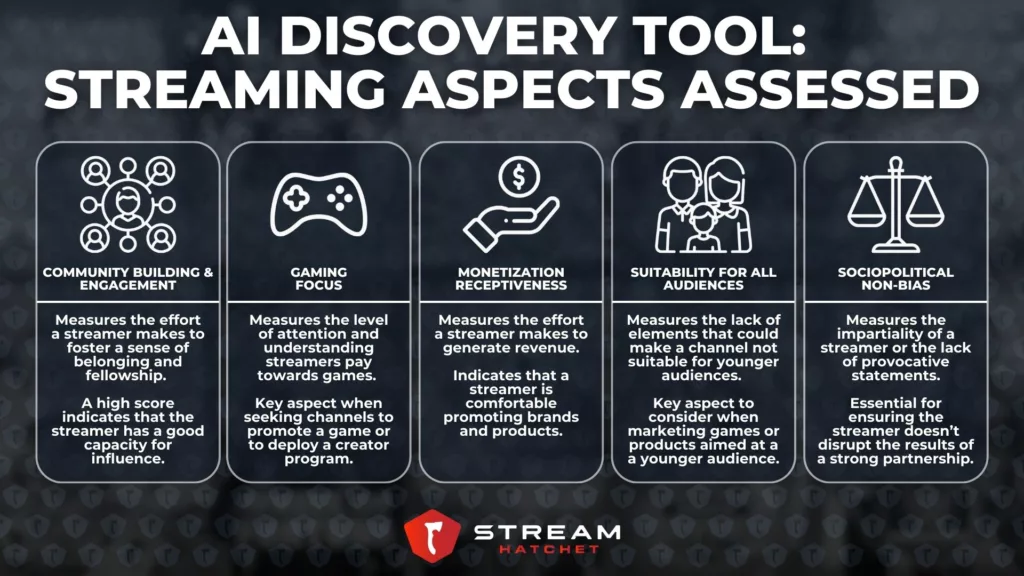
Community Building & Engagement: Most content creators craft a space in which viewers can feel part of something larger than themselves. Continuous references to their group, addressing viewers directly, a warm welcome to those who are new, or simply having a collective name for their group are indicators of the streamer’s effort to engage their community.
Gaming Focus: A significant chunk of the live-streaming arena is devoted to video games. Just how integral gaming is to a streamer’s content can be judged based on whether a streamer focuses on the competitive aspect of their game, the in-game mechanics, or the culture surrounding said game – particularly for live service games.
Monetization Receptiveness: Medium and large-sized streamers monetize their content to make a living. Picking up on a streamer’s previous partnerships with brands indicates their willingness to make sponsored content. That means considering whether a channel has endorsements, promotions, donations, and exclusive content behind paywalls to gauge the streamer’s propensity for generating income via live streaming.
Suitability for All Audiences: Avoiding swear words and discriminatory humor generally suggests streamers are making an active effort to create family-friendly content. This in turn nurtures a younger and broader audience, which can better align with brands who want to reach younger viewers or whose personal values reflect this approach to safe content creation.
Sociopolitical Non-Bias: Although similar to the previous trait, sociopolitical non-bias instead assesses the types of topics discussed by the streamer. Streamers may cover controversial topics without resorting to profanity or discrimination, but brands still may not want to associate with streamers whose opinions are deemed socially unacceptable. Alternatively, a brand might want to manually review the political bias of the streamer before deciding whether or not their values align.
These five qualities are measured and displayed in radar charts, enabling for a quick assessment of the strengths and weaknesses of potential creators. Of course, what’s considered desirable for a given streamer will completely depend on the client’s needs. Ultimately, these five traits are taken together to produce a “Content Score” – a measure of how well the streamer’s content fits the brand’s needs.
A Curated List of Potential Influencer Marketing Partnerships
With all three steps completed, clients can then review the initial metrics, HATCHET score, and AI-assisted Discovery Content Score via an interactable list. The list is initially ranked by the streamer’s “Global Score” – a combination of all the aforementioned scores to give a rough approximation of their popularity, potential, and suitability.
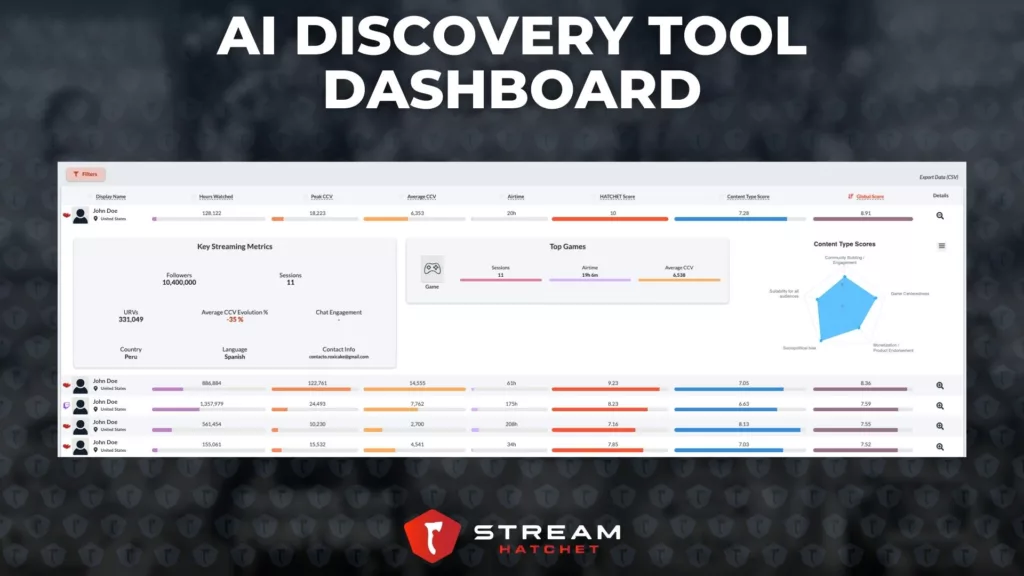
This final list can either be reviewed in the client’s own time, or with the assistance of a Stream Hatchet analyst who can walk through the data and provide their own expert knowledge on specific streamers. This process addresses the practical considerations of selecting a streamer to partner with, such as budget, regional demographic, and personal history.
All the information a client needs to make the right choice for their specific needs is now in one place – no matter which of the aforementioned traits they value most. Some clients may not care about how gaming-centric their partnered influencer is, so the Gaming Centredness metric can be ignored. Alternatively, another client might require purely family-friendly content and can quickly filter out non-family-friendly creators.
A Example from Scopely’s Experience with the Influencer Discovery Program
Scopely is a hugely successful mobile games publisher that has experienced massive sales via titles like Monopoly Go! and, crucially, Stumble Guys: A competitive party game similar to Fall Guys that brings the fun to mobile users around the world.
For some time now, Stream Hatchet has been collaborating with Scopely to track the success of their Stumble Guys creator program, consisting of both organic creators who apply to be a part of the roster, and sought-after partnered creators. As most Stumble Guys content is already created by Scopely-partnered influencers, we decided to look into the creator bases of other games that share similarities with Stumble Guys.
We followed the three-step process described above: We cut down the field by looking at initial metrics like Hours Watched and AMA. Then, we evaluated these remaining streamers by their HATCHET Score. And finally, we used our AI-assisted Discovery technology to determine the suitability of each streamer’s content to Scopely’s preferences. We found the best streamers for the client’s campaign by combining their HATCHET Scores and Content Scores into a Global Score to create a 360º evaluation of every streamer in the list.
Scopely’s Global Creator Program Manager was impressed with the final list:
“Stream Hatchet’s new discovery tool gives us a new way to sift through the many, many potential creators available for partnerships. Their method for determining hard-to-capture qualities, such as a creator’s community engagement or tendency to mention sensitive content, creates a unique opportunity for us to find partners who fit Stumble Guys’ image and resonate with its audience.”
Moving forward, the utility of this AI-assisted Discovery technology will only improve as more sample scripts are fed into it, making it more accurate and more thorough in spotlighting potential creators. The Influencer Discovery Program program provides not only incredible depth (discovering otherwise unnoticed creators) but also much-needed flexibility in filtering out creators by qualitative metrics that can’t be determined by other influencer marketing solutions.
To learn more about Stream Hatchet’s data can guide your own influencer marketing campaigns, get in touch via the link below:
